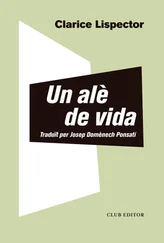Even the preparations made me dizzy with excitement. I had never been kept so busy as my friend and I made careful plans. Beneath our costumes we would wear underslips so that if it started to rain and our costumes disintegrated, at least we would be respectable. The very thought of a sudden downpour of rain leaving two eight-year-old girls standing there in the street, dressed in nothing but flimsy underslips, caused us acute embarrassment before carnival had even started. But God would come to our assistance! There would be no rain! When I remembered that I only possessed a costume because enough crepe-paper had been left over, I swallowed my pride (which had always been ferocious) with some resentment, and humbly accepted what fate had charitably given me.
Yet why did that year’s carnival, the only carnival when I possessed a costume, have to be so sad? Early on Sunday morning, I was already in my curlers so that my hair would be nicely set by the afternoon. The minutes dragged on, I was becoming so impatient. At last, at long last! Three o’clock in the afternoon. Taking care not to tear the paper, I dressed up as a rose.
Many worse things have happened to me and I have shrugged them off. But this particular set-back haunts me to this day. Why does the game of fate seem so irrational? So implacable and cruel? No sooner was I dressed in my crepe-paper costume with my hair still in curlers and waiting to have my face made up with lipstick and rouge, than my mother’s condition suddenly deteriorated. The house was in a panic and I was sent in haste to a near-by chemist to buy medicine. I ran all the way dressed as a rose — my face bereft of make-up and so unmistakably that of a child. Bewildered and in a daze, I kept on running among streamers, confetti and the cries of carnival. The happiness of those revellers terrified me.
Hours later, when things had calmed down at home, my sister combed my hair and made up my face. But something had died inside me. As in those tales I used to read about fairies who bewitched people and then broke the spell, I felt my spell had been broken: I was no longer a rose and had turned back into a little girl. I went down on to the street and as I stood there I was no longer a flower, but a pensive clown with scarlet lips. In my desire to experience ecstasy I would start to feel happy, only to remember with remorse that my mother was seriously ill and once again something died inside me.
Salvation only came hours later. And how I clung to it, so great was my need to be saved. A handsome, twelve-year-old boy, who in my eyes seemed much older, came up to me and with a gesture of affection, daring, mischief and sensuality, covered my hair, no longer curly, with confetti. For a second we stood there, staring at each other, smiling in silence. And so this little eight-year-old woman was able to convince herself for the rest of the evening that someone had finally acknowledged her. I had become a rose after all.
Anyone who has experienced a state of grace will know what I am talking about. I am not referring to inspiration, which is a special grace that comes to those who struggle with art.
The state of grace to which I refer cannot be used for anything. It would appear to come just to let us know it really exists. When in this state, the tranquil happiness which radiates from people and things is enhanced by a lucidity which can only be described as light because in a state of grace everything is so very, very bright. It is the lucidity of those who are no longer surmising: they simply know. Just that: they know. Do not ask me what they know, for I can only reply in the same childish manner: they simply know.
And there is a physical bliss which cannot be compared to anything. The body is transformed into a gift. And one feels it is a gift because one is experiencing at source the unmistakable good fortune of material existence.
In a state of grace, one sometimes perceives the deep beauty, hitherto unattainable, of another person. And everything acquires a kind of halo which is not imaginary: it comes from the splendour of the almost mathematical light emanating from people and things. One starts to feel that everything in existence — whether people or things — breathes and exhales the subtle light of energy. The world’s truth is impalpable.
It bears no relation to what I vaguely imagine the state of grace of saints to be. For that is a state of grace I myself have never experienced and cannot even envisage. No, this is simply the state of grace of an ordinary person who suddenly becomes totally real since he is ordinary, human, and recognizable.
The discoveries made in this state of grace cannot be described or conveyed. So when I find myself in a state of grace, I sit quietly without uttering a word. As if awaiting an annunciation. But unheralded by those angels who presumably precede the state of grace of the saints. As if the angel of life were coming to announce the world.
Then the angel slowly withdraws. Not in a state of trance — for there is no trance — the angel slowly withdraws, sighing, as if already familiar with the world as it is. The angel’s sigh is also one of longing. For having tried to acquire a body and a soul and a place on earth, the angel desires these things more and more. It is useless to desire: things only come when desired spontaneously.
I cannot explain it, but I find that animals are more often in an existential state of grace than human beings. Except that animals do not know, while human beings can perceive these things. Human beings come up against obstacles which do not affect the lives of animals, such as reasoning, logic and understanding. While animals enjoy the splendour of that which is direct and proceeds directly.
God knows what He is doing: I do not believe the state of grace should be bestowed on us too often. Otherwise we might pass forever on to the other side of life, which is also real but no one would understand us any more. We should lose our common language.
It is also a good thing that grace should not come as often as I should like. For I might get used to happiness (I forgot to mention that one feels extremely happy when in a state of grace). To get used to happiness could be dangerous. We could become more selfish because happy people are selfish. They are less sensitive to human suffering and we might not feel obliged to try and help those in need — simply because we possess the essence and compensation of life when we are in a state of grace.
No, even if the choice were mine, I should not want to be in a state of grace too often. It would be like becoming addicted to some vice. I should become a contemplative like those who smoke opium. And were that state of grace to occur too often, I feel certain I should abuse it: I should start expecting to live in a permanent state of grace. And this would result in an unforgivable flight from destiny, which is simply human, made up of conflict and suffering, of uncertainties and minor joys.
It is better if the state of grace is short-lived. Should it last too long, as I well know, familiar as I am with my almost childish ambitions, I should end up trying to penetrate the enigmas of Nature. And that would be enough to banish all grace. For grace is a gift which makes no demands, but it would disappear if we were to start demanding answers. We must never forget that the state of grace is only a tiny aperture which allows us to glimpse a sort of tranquil Paradise, but it is not an entrance, nor does it give us the right to eat the fruits of the orchards.
One emerges from a state of grace with clear skin and open, thoughtful eyes. And, even without a trace of happiness, it is as if one’s whole body were bathed in a gentle smile. And one comes away a better person than when one entered. To have known grace is to have experienced something which appears to redeem the human condition while accentuating the strict limitations of that condition. After experiencing grace, the human condition is revealed in all its wretched poverty, thereby teaching us to love more, to forgive more, and show greater faith. One begins to have a certain confidence in suffering and its ways, which can so often become unbearable.
Читать дальше












